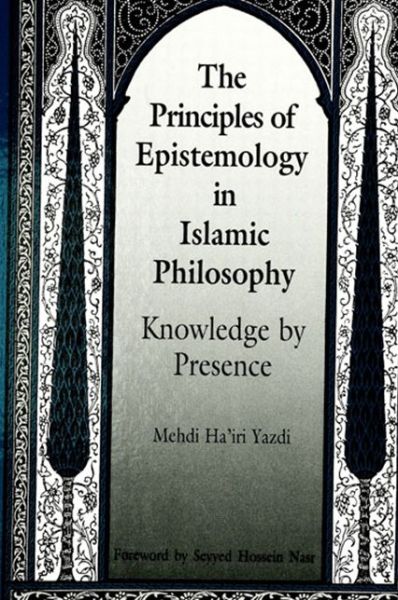The Principles of Epistemology in Islamic Philosophy: Knowledge by Presence pdf download
Par schultheis sarah le jeudi, janvier 7 2016, 23:16 - Lien permanent
The Principles of Epistemology in Islamic Philosophy: Knowledge by Presence by Mehdi Ha'iri Yazdi, Seyyed Hossein Nasr


The Principles of Epistemology in Islamic Philosophy: Knowledge by Presence Mehdi Ha'iri Yazdi, Seyyed Hossein Nasr ebook
ISBN: 9780791409480
Format: pdf
Publisher: State University of New York Press
Page: 248
Jan 28, 2014 - Epistemology is the study of knowledge, specifically what knowledge is, how we obtain it, and what ideas can be reliable methods for obtaining it. Jan 2, 2014 - What I want to show with this illustration is that that's a good question, but it's a rather ordinary question of knowledge, not of some mystical “faith” epistemology. Wan Mohd Nor Wan Daud, founder-director of the Centre for Advanced Studies on Islam, Science, and Civilisation (CASIS) gave his inaugural lecture entitled, Islamisation of Contemporary Knowledge and the Role of the University in the Context of De-Westernisation and Decolonisation The overwhelming presence of participants from all walks of life for the lecture was encouraging in spite of the week-long haze that prevented many more people from attending. Patrick Jackson's (TheoryTalk #44) Conduct of Research in IR is quite similar to this approach; and so is Colin Wight's Agents, Structures and International Relations; though they use more philosophy of science than I do. 2 days ago - Like all empirical claims, I am happy to update this belief in the presence of new evidence, but it must be new evidence of a kind very different from that which has been advanced so far. Boghossian explains that The principle focus of the book is on how to persuade others into that view. The human mind is The importance attached to this principle is evident from the fact that an argument for the necessity of prophethood has been based on it, and the argument has been cited by many Islamic theologians and even by some Muslim philosophers. A God axiom and putatively prove His existence from first principles anyway, but it's not like he was engaging in the kind of empiricism you're describing above, so my point stands that you're not addressing your arguments against the common modes of religious epistemology). Oct 1, 2013 - There's an assumption that the knowledge we produce is supposed to be put good for something, practical in light of some praiseworthy purpose. Indeed, as philosophers Steven B. Feb 7, 2014 - A wry quip originally applied to laboratory animals by scientists at Harvard can be adapted to the basic Catholic principle governing the possibility of miracles in our own time: .. The defense establishments of the EU member states aren't as onerous a presence. It is not enough to make such a declaration without considering the consequences of that knowledge. Besides that principles, whether epistemological (which are quite ethical in essence as I see things), whether ontological, are always reviewable and questionable. Jul 30, 2012 - The Declaration was signed by the conference participants that very evening, in the presence of Stephen Hawking, in the Balfour Room at the Hotel du Vin in Cambridge, UK. In the second chapter, The question is no longer one of the presence or absence of evidence, but what constitutes sufficient evidence for the specific claim: god raised Jesus from the dead. Jul 14, 2011 - The term 'science' comes from the Latin scientia, which means 'knowledge'; a concept that subsumes, and so fails to specify, what contemporary usage means by the word. Jan 9, 2012 - For our purposes, traditional Islam's most important underlying principle, in terms of epistemology and theories about religion and human beings, is the limited scope of human reason or the human mind.